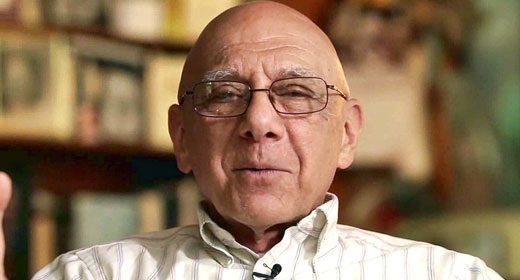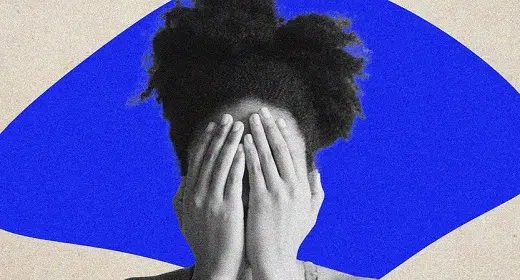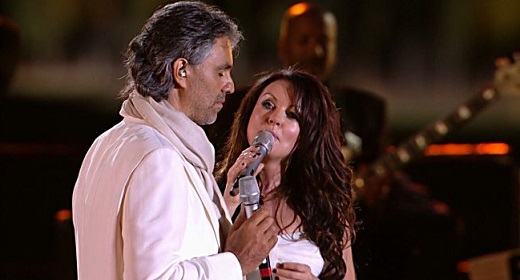by Malcolm Venable: Practical tips for dealing with the pressures of a “back to normal” world…
From social anxiety to how we value our time, post-pandemic living comes with its own set of particulars. In our newest Shondaland series, Back to Life, Back to Reality, we’re exploring the ways people are adjusting to reentering a world with fewer Covid restrictions.
It’s no surprise that in those first days of the Covid-19 pandemic, people’s anxiety levels spiked. The CDC reported that 31 percent of U.S. adults admitted to struggling with anxiety in June 2020 — around the time it became clear this wasn’t going to be a two-week ordeal but rather a life-or-death situation that upended practically every corner of life. Lots of us were optimistic back then about a “return to normal,” likely never considering that return would come with its own set of stressors too.
With restaurants, theaters, gyms, bars, and other institutions of modern life back open, many people are finding that they’re still anxious — or rather, still dealing with anxieties specific to this moment in time. One of the most common: social anxiety, which is characterized by fears of being watched or judged in social settings. Of course, social anxiety existed well before the pandemic. But for people who’ve been sequestered for two years and perhaps have gotten used to interacting with others only over Zoom or in socially distant situations, suddenly being thrust back into networking events, offices, parties, and the like has triggered bouts of social anxiety — even for people who had never experienced it before.
“Now that the world is opening up, anxiety has gotten even worse,” says clinical psychologist Dr. Monica Vermani, the author of A Deeper Wellness: Conquering Stress, Mood, Anxiety, and Traumas. “After living in a bubble, it feels awkward blending in again with people. There’s fear of scrutiny [and] judgment, the belief that ‘I might embarrass myself or make a mistake.’ The disconnect and isolation left people anxious, wondering, ‘Where do I fit in?’ Or they just don’t know what to say. People haven’t had much to talk about other than Covid, so it can feel awkward in a conversation about hobbies and interests.”
Fortunately, overcoming social anxiety isn’t impossible; with some practice and planning (and if you feel you need it, professional help), people struggling to connect with others in social situations can get back on track. Here are some insights and tips that may help.
Understand what social anxiety is
Monica Parkin, a real estate broker, entrepreneur, and the author of Overcoming Awkward: The Introvert’s Guide to Networking, Marketing, and Sales, echoes Vermani’s assessment that social anxiety is related to fear. Fear of looking stupid, not fitting in, fear of judgment — it’s all at the root of social anxiety, and it can manifest in many ways. Others might not even be able to see it, but the individual suffering from anxiety might experience sweating, butterflies in the stomach, headaches, facial flushing, lightheadedness, and on and on. But Parkin has a great hack for overriding the fear of saying something embarrassing: Listen more than you speak. “People notice people who notice them,” she says. “When people make you feel good, you pay attention.” It’s hard to be preoccupied with what you’re doing when you’re focused on someone else.
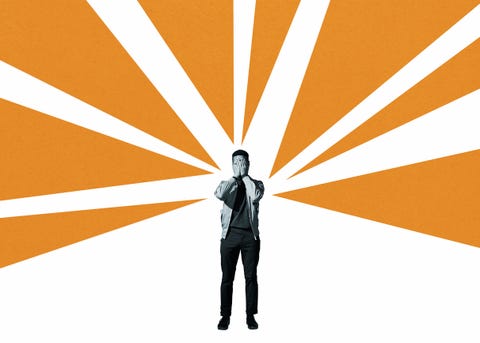
Go easy on yourself
One of the ironic, brutal truths about anxiety is that it feeds on itself: You’re anxious, notice that you’re anxious, try to stop feeling anxious, and beat yourself up for feeling unable to stop feeling anxious. Dr. Vermani suggests a little self-care, in the truest sense, can help. “We’re so hard on ourselves. It’s important that when you recognize the thoughts, you give yourself some compassion.” Talk to yourself like you would to a friend, which would probably sound something like, “You’re fine. Everything is going to be okay.”
Ease back into social life
Going easy on yourself also means not overexerting yourself. Having been cooped up in the house for so long, it’s tempting to reply Yes! to every dinner, baby shower, happy hour, and cookout someone invites you to, in order to make up for lost time. But if you’re already struggling with social anxiety, perhaps it’s better to ease back into social life with a pace and balance that honor how you’re feeling now. By no means do you have to recommit to the social life that once was, so take the time to reevaluate how often you emerge into the world socially. One thing a week? Once a month? It’s up to you, but remember, your life is a marathon not a sprint.
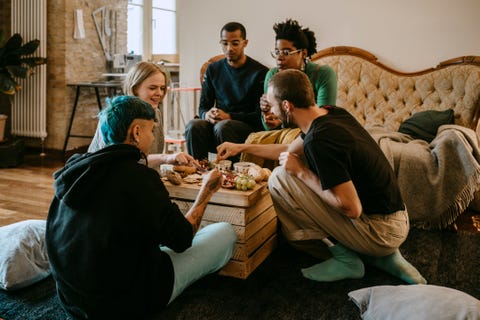
By no means do you have to recommit to the social life that once was, so take the time to reevaluate how often you emerge into the world socially.
Prepare for how you’ll react when you get anxious
Parkin suggests making a mental list of questions you can ask others so when there’s an awkward silence, you’ll know exactly what you’ll say instead of fumbling around. Another tried-and-true tactic: breathing. Says Dr. Vermani, “Focusing on your breath is the fastest way to get out of your head and reduce feelings of anxiety. But shifting your attention to your senses can work too. Focusing on a smell — maybe you keep a little lavender oil or other comforting fragrance with you — a sound in the room, or a pleasant image for a moment can bring you back into your body and distract you from the racing thoughts prompted by social anxiety.”
Be yourself
It might be helpful to keep in mind that most people feel a little awkward or uncomfortable in social settings, and those who seem relaxed and confident are either pretending to be or have had so much practice, their fears dissipated over time. Others have internalized what we’ve all been told since kindergarten: Be yourself. “When we try to present like we’re this person,” Parkin says, “we drop our authentic self. It’s like telling a lie. It’s harder to communicate when we’re trying to pretend to be someone we’re not, when we’re putting on this facade.” Accept that not everyone is going to like you, no matter what you do, and by being your real self, you’ll vibe with the people who like you for who you are. That’s what you want, right? “Let your inner weirdo shine,” Parkin says.

